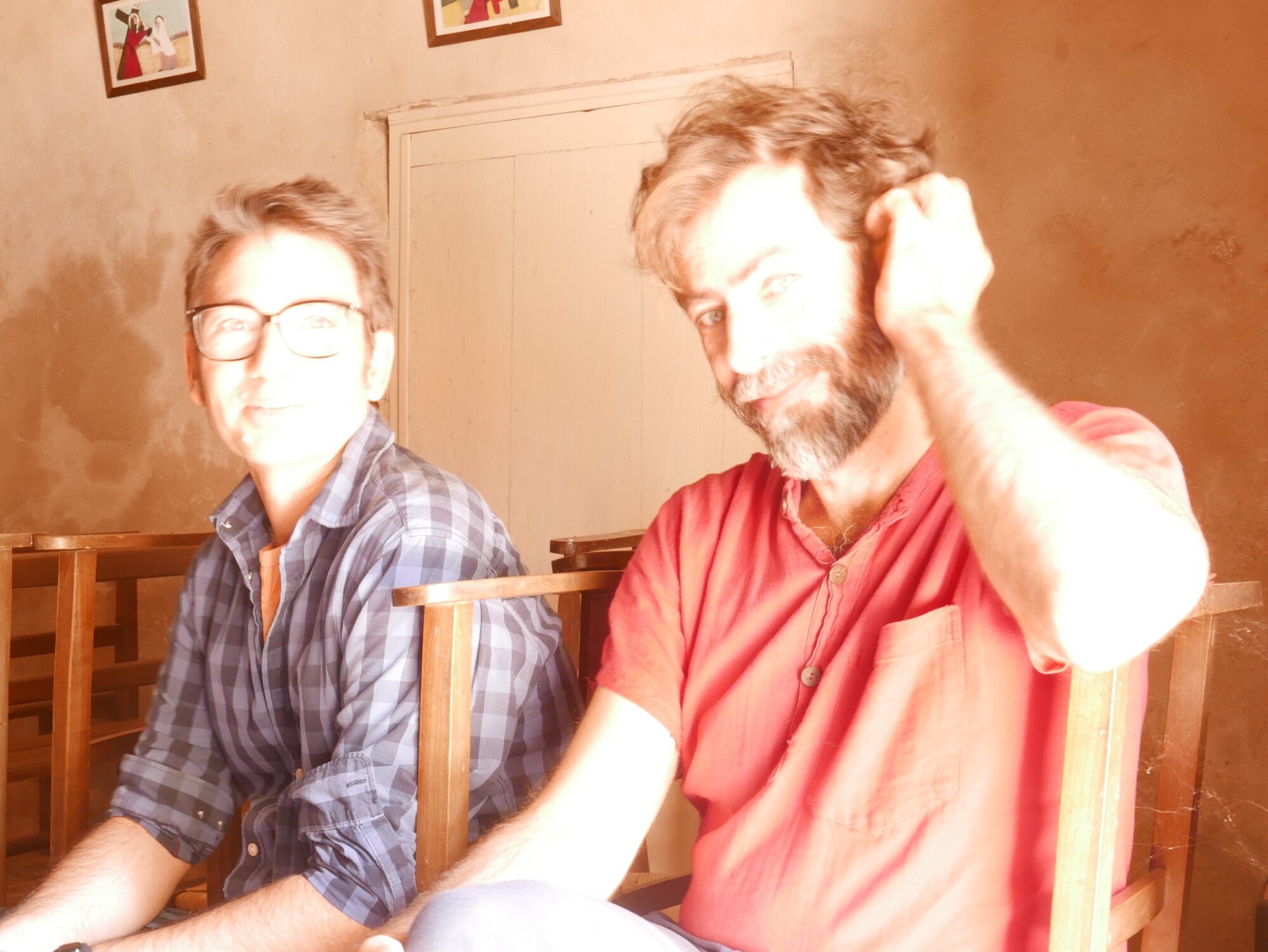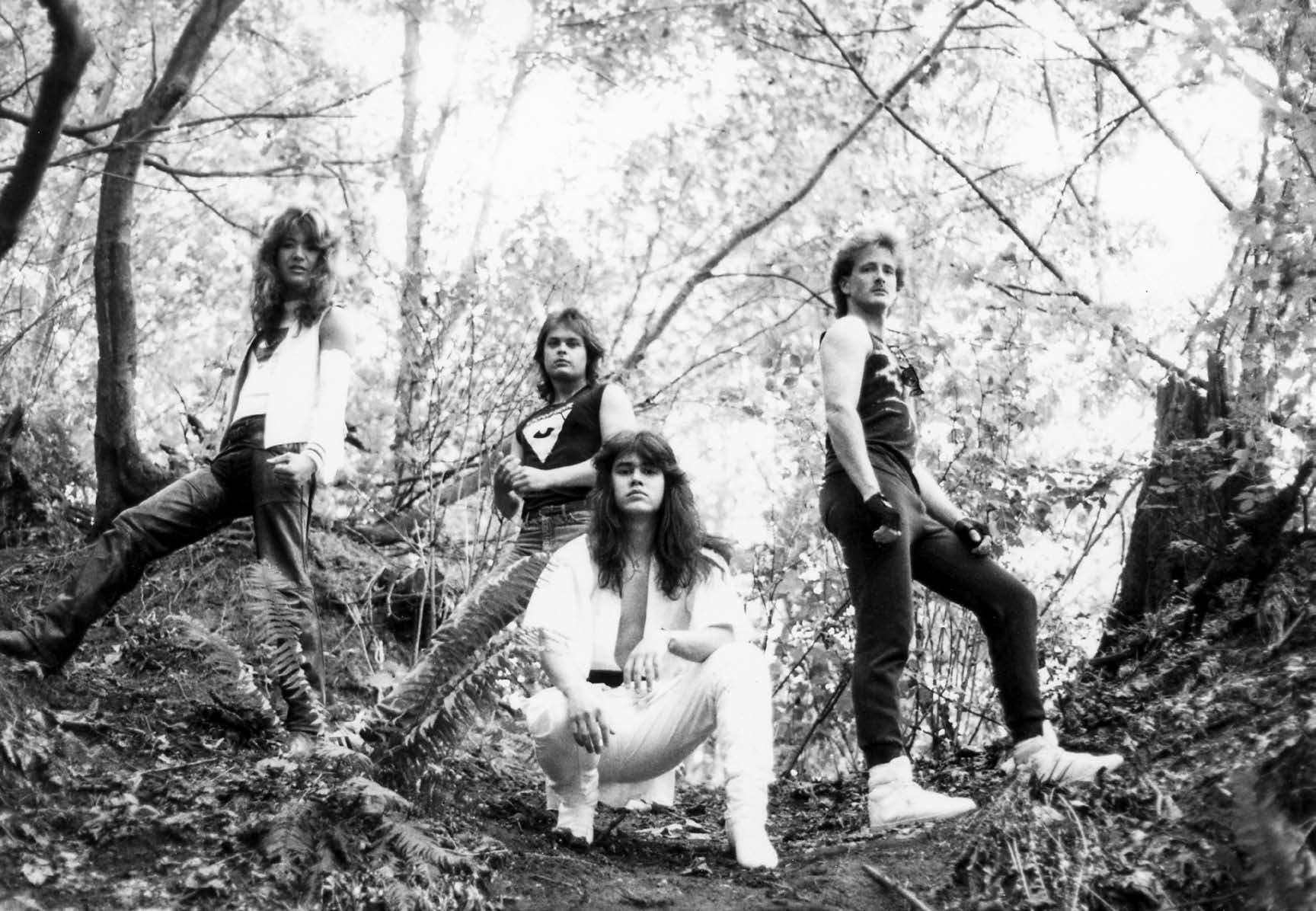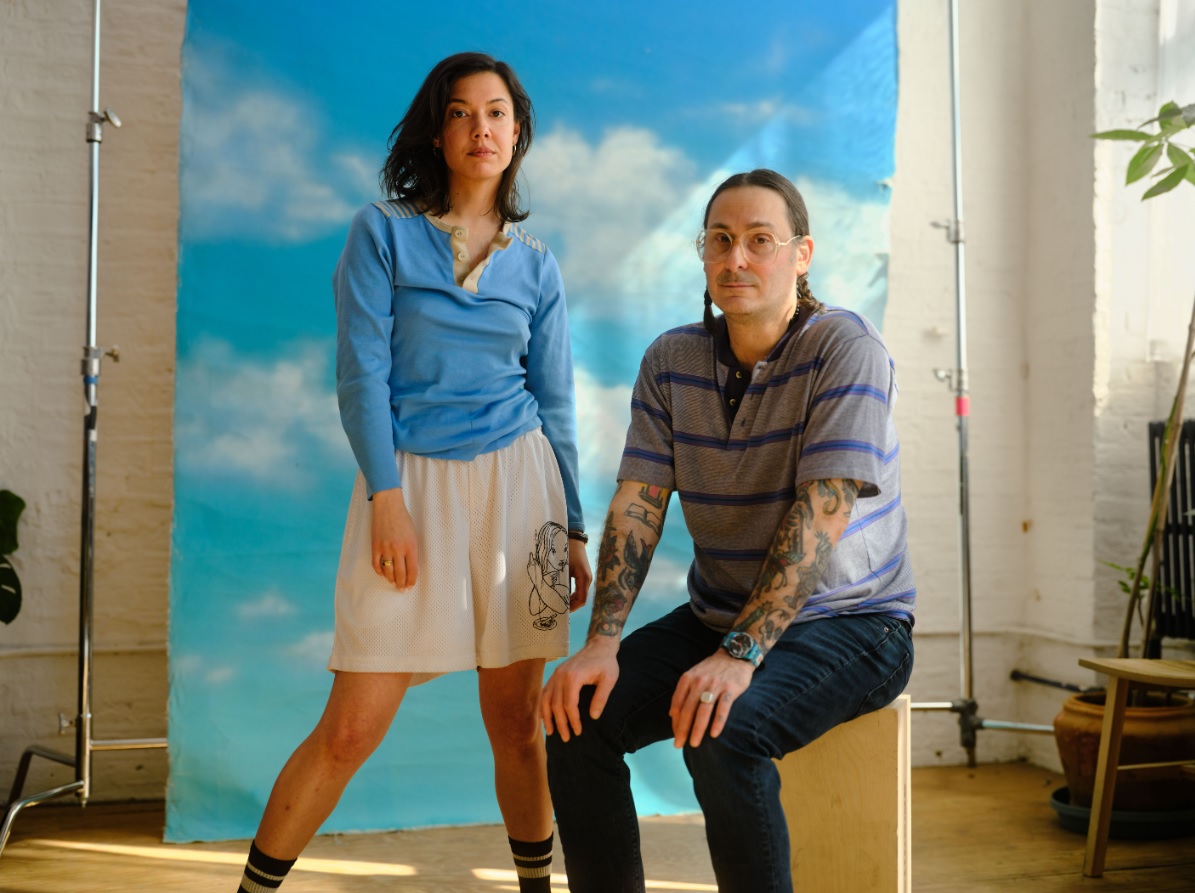Cheval de frise | Interview | New Expanded Reissue
The duo of drummer Vincent Beysselance and Thomas Bonvalet (electro-acoustic guitar) formed in 1998 in Bordeaux, France with intention to play instrumental experimental music that today would be described as avant/math-rock.
Their debut album, ‘Cheval de frise,’ is one of a kind recording that was originally released in 2000 on CD format via Bordeaux based label Sonore and was recently reissued by New York City label Computer Students™, together with their second album, ‘Fresques sur les parois secrètes du crâne’. It’s being the first time this gem will be on vinyl and cassette, some twenty years after its publication on CD.
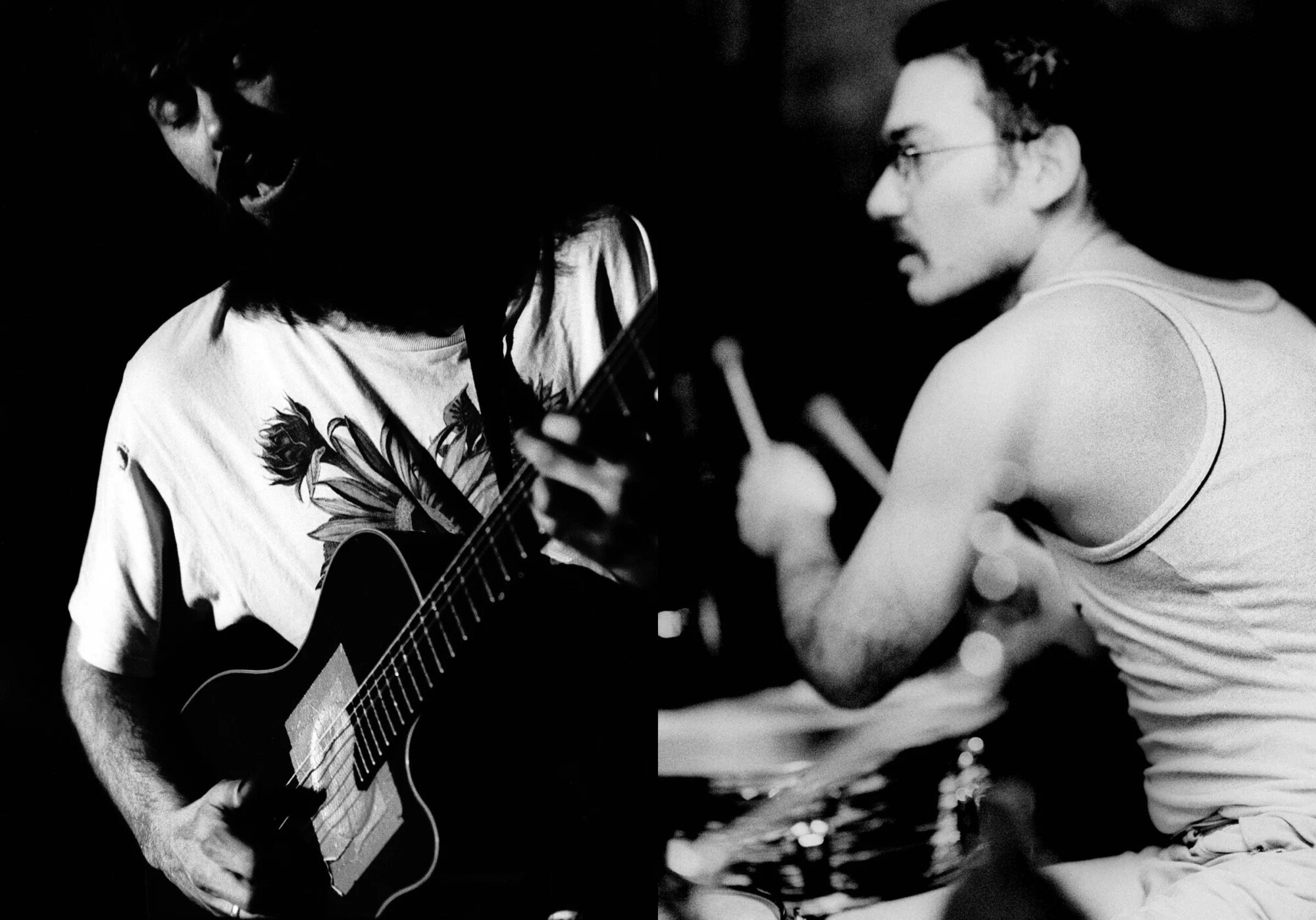
“To explore the possibilities, in timbre, dynamics, depths and peaks”
The cheval de frise was a defensive obstacle, existing in a number of forms, principally as a static anti-cavalry obstacle but also quickly movable to close breaches. Do you see what you make with your music as something of a defensive obstacle? Do tell us how the band name came about?
Thomas Bonvalet: For me, the creative process is rarely lucid and enlightened at the outset, whether it involves words, images or sounds. There is more of a need than an intention, and the meaning is revealed or constructed on the way or later… My former band was named Amble, because during a stay in Ireland, I was struck by a race in the narrow streets of a village, with horses going at a fast amble, an unnatural gait for this animal especially at this speed, with strange shackles. It seemed to me both violent and beautiful (I can’t find any information on this kind of horse race now, maybe I dreamt it?). When I was looking for a name for this new project, horses were always on my mind, and when I was looking through a dictionary I came across the expression cheval de frise, which had nothing to do with the animal (“cheval” meaning “horse” in French), but which immediately resonated with the anxious young man that I was. I don’t know if it’s still true for the younger generations, but like many little boys my age, I was fed with military imagery throughout my childhood. Toys, films… it had a profound impact, determining an aesthetic, a material and the possibility of making analogies with emotional states. I was impressed by John Wayne’s film “The Alamo,” and the idea of the desperate siege really moved me, and I reproduced it a lot in my childhood games. By analogy, this music could have, in part, the same function for me as a defensive structure.
Are both of you coming from Bordeaux, France? Tell us a bit about your background and how you first get interested in music and what led you to start experimenting?
Thomas: I was born and grew up in Dordogne, in the small town of Ribérac. I played music as a child, but I was doing it by convention, I had no taste for it and no interest in it. I sang in choirs, played the cello a bit and stopped as soon as I was old enough to assert myself, at 8 or 9. I’ve forgotten everything I learned back then, I’m no longer able to read music. I started listening to a lot more music just after I’d given up, and discovering punk rock at the age of 11 was a real turning point. I listened to a lot of music during my teenage years, without actually playing any. When I was 15 I went to my very first rock festival with my older sister, in Blaye in 1992, to see Ned’s Atomic Dustbin. Therapy? played the same night (at the time of their second album, ‘Pleasure Death’) and I was blown away, especially by the drummer and bassist. A few months later I bought an electric bass in a second-hand shop, it was fretless and left-handed. I’d never seen a bass up close and I hadn’t noticed these little peculiarities. I immediately formed a band with one of my oldest friends who already played guitar and we convinced another to become a drummer. I was also a singer for the first few years, before I got so self-conscious about my voice and lyrics that I eventually quit up and focused only on the instrument. I was also doing a radio show on a small local station, and as no one listened to it, it became a sort of playground for experimentation: collages, superimpositions, rudimentary recording experiments, and when our guitarist left, these experiments were integrated into the group. So Amble became an instrumental band: bass, drums and tapes.
Vincent Beysselance: I spent my youth in Bordeaux with friends who were passionate about punk, hardcore and metal (Bad religion, Dead Kennedys, The Notwist, Helmet…). We played a lot together and did a lot of shows, minor tours in France (with bands Seven Hate and Burning Heads). At the end of this period around 1998, after musical disagreements (fed up with binary rhythms), I met Thomas through a mutual friend. He, like me, had a taste for complexity and the unheard. The meeting was fusional, from the first rehearsal, we felt that something new was emerging.
So how was Cheval De Frise born in 1998?
Thomas: Amble was disintegrating, the drummer didn’t want to play at all, it was very frustrating because music was absolutely essential for me, and I hoped to be able to fully commit myself. I was working in construction and I hated it, I was very depressed and at a dead end. I moved to Bordeaux in September to follow my girlfriend who was studying there at the time and in the hope of meeting a drummer. I knew what direction I wanted to take musically, following on from what I was doing with Amble. I was fascinated by the rhythmic complexity of Craw and Dazzling Killmen, and the beauty and strangeness of Gastr del Sol… I had no idea what Math Rock was at the time. That wasn’t a term I heard around me, and this level of complexity wasn’t particularly fashionable at the time. The trend was towards minimalism in certain forms of post-rock and a lot of people around me were abandoning traditional instruments in favour of electronics. I don’t know if it was a general trend, but in France it was very noticeable, bands were breaking up and moving on to other things. It seemed complicated to find someone to follow me down this path, but I was fortunate to meet Vincent fairly quickly through a common friend.
Vincent: I tried to continue the post punk adventure of my then group Tomy with Raphael (who became guitarist of Sleeppers later), but the musical understanding was lukewarm. Fortunately, Thomas came all upset! Humanly he suited me more, I was also fed up with hardcore punk drinking and smoking parties!
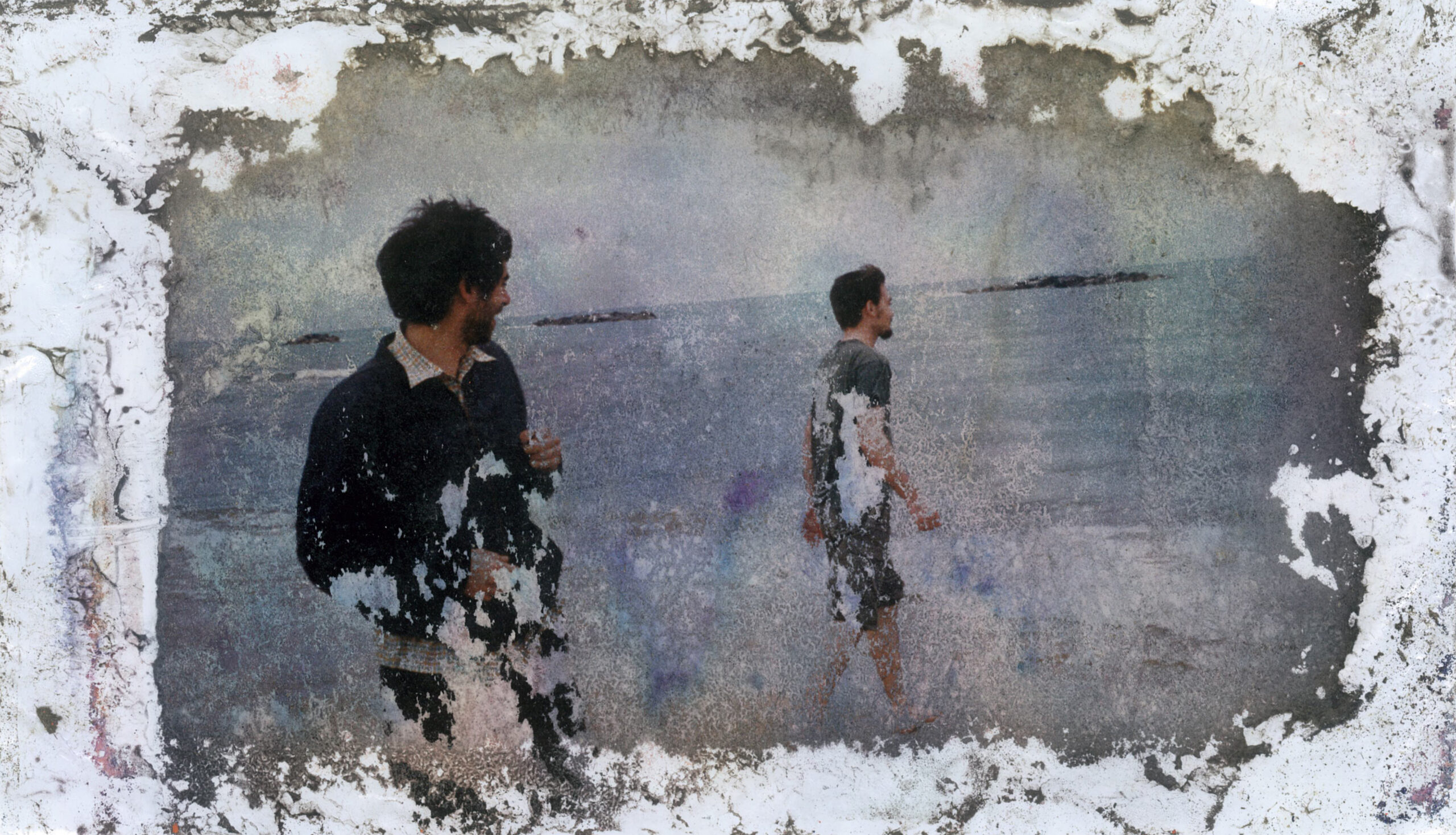
What kind of overall vision you had for the project and to what degree do you think you managed to do that?
Thomas: As previously said, there was a taste for complexity and a certain strangeness, but the instrumentation was less referential. I knew that a duo form was possible because I’d experienced it with my previous group. The same goes for the fact that the band is just instrumental. I’d seen examples of bands with just bass and drums like Ruins, Belly Button or Sabot, but I hadn’t heard of any guitar/drums bands at that point. I did the very first rehearsals on bass but I soon found myself at a dead end. I had a classical guitar that I didn’t really play, so I tried amplifying it and was immediately really enthusiastic. The choice of nylons wasn’t really deliberate, but it really determined the colour of the band and a part of its uniqueness. Our music wouldn’t have evoked the same things at all if I’d opted for a guitar with steel strings.
Vincent: There was no particular intention but just a taste for novelty (especially rhythmic). I think the freshness we brought to the Bordeaux scene was stimulating. It was a time without the internet, and without YouTube. We really had the naive feeling of doing something new.
Your debut album was released in 2000 and recently got a truly wonderful reissue through Computer Students. Hearing the record today, what are some of the memories that run through your mind when hearing the material on it?
Thomas: There was a lot of passion and determination. I don’t think I had many doubts as everything was very obvious and necessary. Things were finally taking shape after years of somewhat abstract daydreams and frustrating, hopeless situations. And this blossoming came about with a great deal of clumsiness but also great strength.
Vincent: Listening to the first album again brought back a moving memory of sincere friendship with Thomas (who still is) . What is curious is that I did not perceive the melancholic aspect of the album at the time, a privilege of age? I was more focused on the technical element. Finally, this record has grown on me!
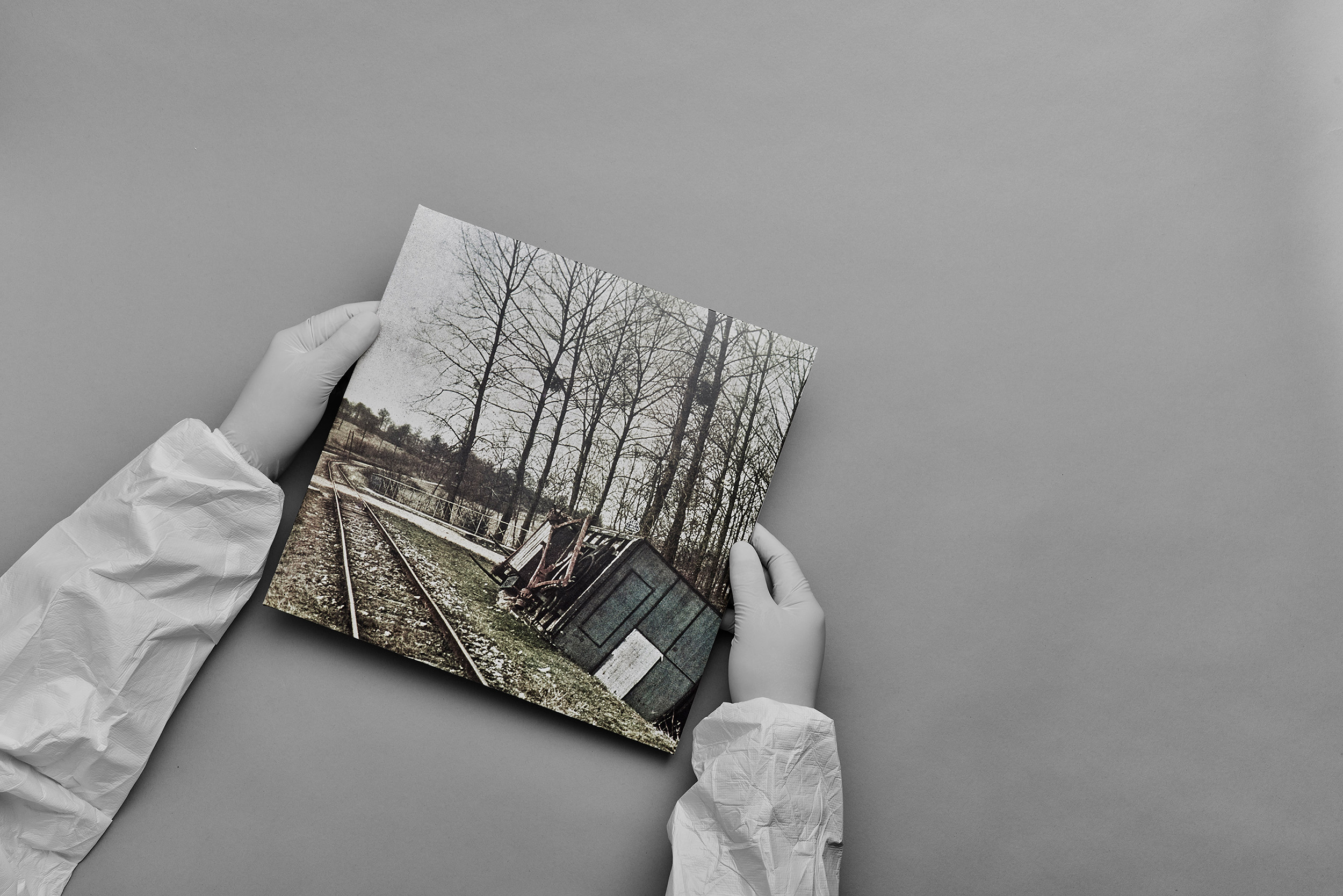
We are all very excited about the upcoming reissue of your second album, ‘Fresques Sur Les Parois Secrètes Du Crâne’ also out via Computer Students. Would you be able to draw any parallels between your debut and second album?
Thomas: The creative drive was very different, a kind of breakthrough had been made, something had been established, this music had been able to blossom in strength, with a ram’s charge to cross this threshold. That energy was no longer needed, and we could slow the momentum down to explore the possibilities, in timbre, dynamics, depths and peaks.
“Fresques is a transitional album”
What was the creative process for ‘Fresques Sur Les Parois Secrètes Du Crâne’ like and where did you record it?
Thomas: The first album was initially mainly guitar compositions, but with ‘Fresques’ there was more interaction. Our third album, ‘La Lame du Mat’ is really a group composition. ‘Fresques’ is a transitional album, with a lot of searching and hesitation. There was also a desire to handle patterns that were more fluid and relaxed, or at least had less angular tension. We recorded in France at the Black Box studio, created by English producer and engineer Ian Burgess.
Vincent: I made a point of continuing my exile from the hardcore punk scene by experimenting with more technique and complex time signatures. In terms of sounds, I also attempted to broaden my playing to other types of strikes (brooms, fagots, mallets, Chinese bagettes) without having the slightest musical training in these techniques! The choice of “black box studio” corresponded to our aesthetic at the time: a broad and airy sound, not very precise but powerful and very natural.
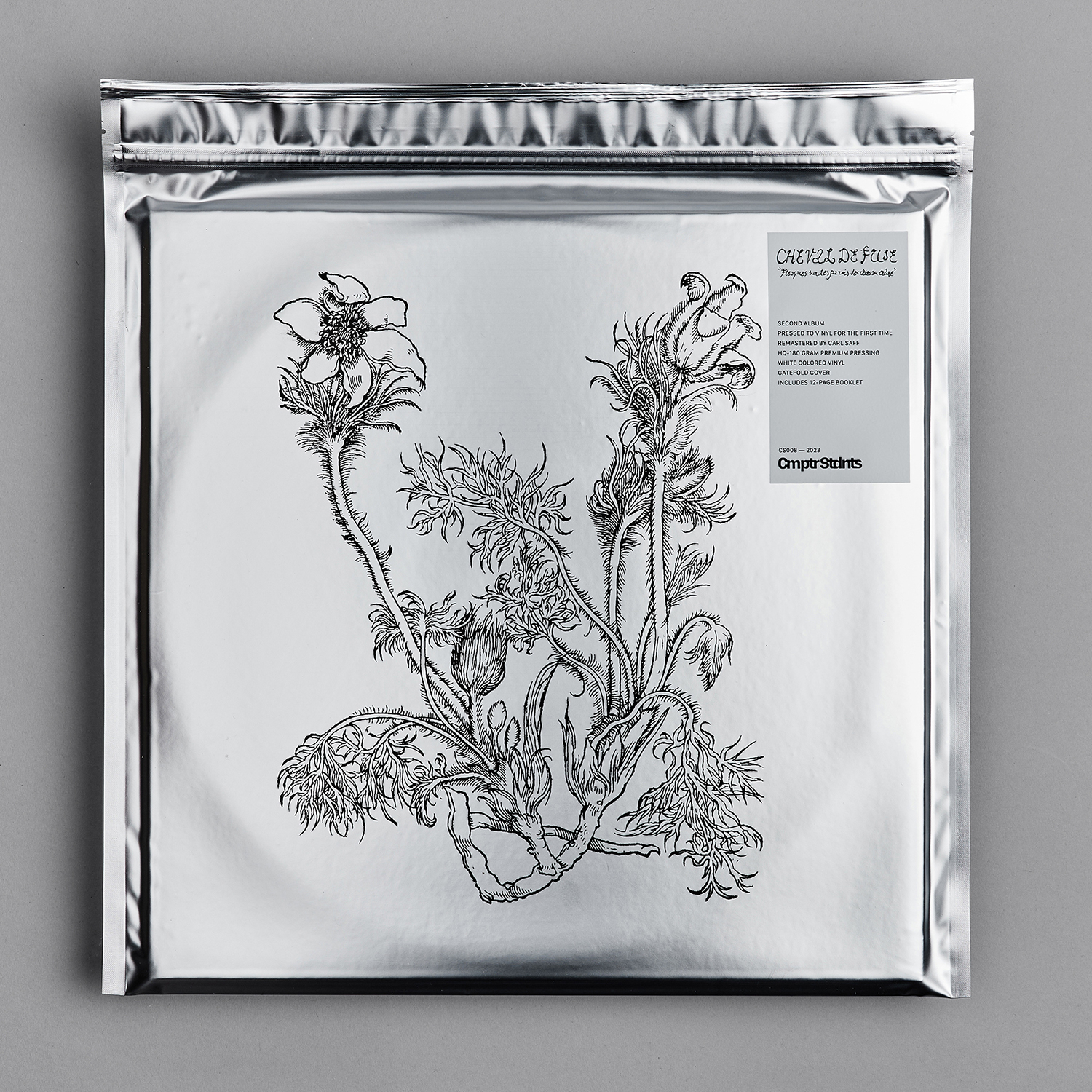
Were you involved with the reissue project? How did you enjoy working with Computer Students?
Thomas: Yes, we had a lot of time to exchange ideas with Julien Fernandez (label boss), to re-evaluate and optimise all the original material, but beyond that it was a very creative process, especially for the second album, to which we added a lot of new material, even though it was connected to the original artistic work. It was a lengthy and extensive collaboration effort. Julien is extremely careful and meticulous.
They do spectacular packaging among others, not to mention all the details…
Thomas: Yes, I’m very happy with the result, it’s beautiful.
What else occupies your life? Both of you have been part of various projects. Feel free to share some further words about that.
Thomas: I did a lot of solo work after the group split up under the name L’ocelle mare. I also took part in a number of projects such as Radikal Satan, Powerdove, Arlt and Urs Graf Consort, as well as working with improvisers like Jean-Luc Guionnet and Arnaud Rivière. I was a professional musician for over twenty years. I had to give it up because I suffer from pain hyperacusis.
Vincent: I have been a secondary school teacher for over 20 years, beginning with the Cheval de Frise split. I continued to work as a drummer in an instrumental metal band called Tormenta whose debut album was released in 2011 on the label Africantape, former label of Julien Fernandez. Since then I have continued playing drums in small unofficial projects. I learned to read music ten years ago and I play the cello in a very good amateur orchestra directed by Gaëtan Biron, violinist in the Orchestre national de France. For several months I have been taking private cello lessons with Estelle Persiaux, a cellist from the Opera Garnier orchestra. We play great music like Dvořák, Mendelssohn, Brahms, J.S Bach… A new adventure that suits me!
Let’s end this interview with some of your favourite albums. Have you found something new lately you would like to recommend to our readers?
Thomas: Godflesh ‘Pure,’ Maurice Ravel ‘Music for piano,’ Jean Doyen, Brise-Glace ‘When in Vanitas…,’ Craw “s/t,” Gregorio Paniagua ‘Musique de la grèce Antique,’ Rolf Lislevand, J. H. Kapsberger ‘Libro Quarto D’intavolatura di Chitarone,’ Joseph Matthias Hauer ‘Atonale musik,’ Morton Feldman ‘For John Cage,’ Jesu “s/t”. These are just a few examples, I have numerous favourites associated with various times in my life. Hyperacusis stops me from really listening to music now. But a friend of mine introduced me to Lili Boulanger, which I’ve been able to listen to a little bit and which I find very beautiful.
Vincent: I run intensively but not competitively, and I can say that Metallica’s latest albums are particularly suited to this activity! In fact, the absence of “hits” which remain engraved in your brain avoids the phenomenon of saturation. We just listen to the energy without waiting to be hooked. It’s probably not the best review but they don’t need my opinion to sell their music!
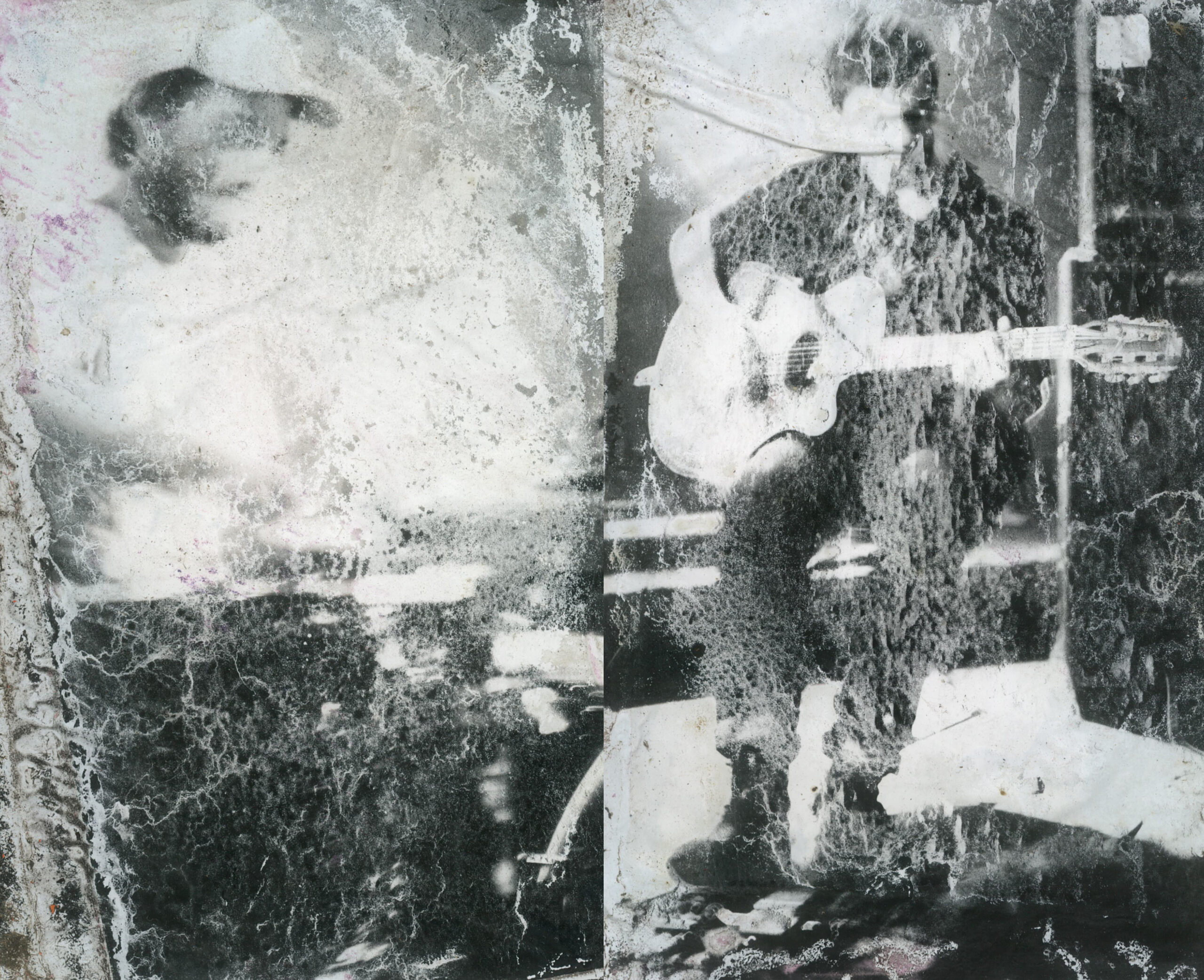
Thank you. Last word is yours.
Vincent: I leave Thomas with the last word!
Thomas: The fact that this music is still being listened to twenty years later warms my heart, we’ve been very lucky… I’d like to thank Julien Fernandez warmly, his enthusiasm and determination to lead this reissue project has done me a lot of good at a time when music had vanished from my life, merci Julien et merci à toi pour l’entretien !
Klemen Breznikar
‘Fresques Sur Les Parois Secrètes Du Crâne’ album order here!
Headline photo: Vincent Beysselance and Thomas Bonvalet of Cheval de frise (2023)
Cheval de frise Facebook
Computer Students™ Official Website / Instagram
‘Fresques sur les parois secrètes du crâne by Cheval de frise | Expanded Reissue via Computer Students™’
‘Connexion monstrueuse entre un objet et son image’ by Cheval de frise | “Reissue of lost math rock duo”

